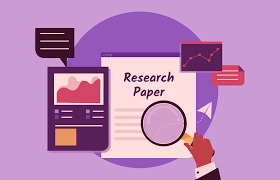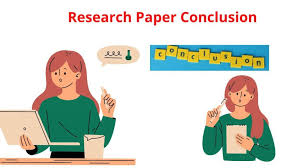Tips for Writing a Great Research Paper
Research Paper tips
What exactly is a research paper?
Research paper tips are intended for students and not for professional researchers. On the basis of empirical evidence, a research paper provides an in-depth analysis, evaluation, or interpretation of a singular topic. Research papers are comparable to analytical essays, with the exception that research papers emphasize the use of statistical data and previous research, and adhere to a strict citation format.
Research papers are a pillar of contemporary science and the most efficient means of disseminating information over a vast network. However, most people are familiar with research papers from school; they are frequently used in college courses to evaluate a student’s knowledge of a particular subject or research skills in general.
Considering their importance, research papers favor formal, even neutral language that eliminates all bias. Researchers present their findings clearly and with supporting evidence, allowing other researchers to utilize the paper for their own research.
Keep in mind that composing a research paper and a research proposal are distinct tasks. Primarily, the purpose of research proposals is to secure the funding necessary to collect the data required to produce a research paper.
Our team offer exclusive research paper that are plagiarism free on time. Hit us up for an A in RESEARCH PAPERS.
How lengthy does a research paper need to be?
The length of a research paper is determined by its subject and assignment. The average length of a research paper is between 4,000 and 6,000 words, but short papers of 2,000 words or extensive papers exceeding 10,000 words are not uncommon.
The recommended duration for a school-assigned paper should be specified in the assignment. Otherwise, allow the topic to determine the length: Complex subjects and extensive research will necessitate additional explanation.

Research Paper Tips
These tips for composing a research paper are intended for students and not for professional researchers. Consider this more of a general outline to help you stay on track, as certain steps may not pertain to your specific assignment.
-
Understand the assignment
Some of you may find this obvious, but you may be astonished by the number of students who begin a research paper without reading the assignment guidelines.
Therefore, you should begin by reviewing the assignment and reading the writing prompt attentively. Specifically, search for technical requirements such as length, formatting (single versus double spacing, indentation, etc.), and citation style. Also pay attention to the particulars, such as whether or not an abstract or cover page is required.
Once you have an understanding of the assignment, the remaining stages in how to write a research paper resemble the typical writing process. There are a few additional stages because research papers have additional rules, but the overall writing process is the same.
-
Select your topic
Students must choose their own topics for open-ended assignments. Despite its apparent simplicity, selecting a topic for a research paper is the most essential decision you will make, as it determines everything that follows.
Priority number one when determining how to select a topic for a research paper is whether it will provide sufficient material for an entire paper. You should select a topic with sufficient data and complexity to facilitate a robust discussion. However, you should also avoid general topics and instead focus on those that are narrow enough for you to cover all the pertinent information without having to trim too much.
Try not to be robotic when selecting your topic; it is still best to choose something that you have a genuine interest in. Ideally, you will discover a topic that satisfies both criteria, one that provides an adequate amount of content and keeps you interested.
-
Compile preliminary information
Since it is termed a research paper for a reason, the sooner you begin your research, the better.
Find out as soon as possible what research is available on your topic so you can refine it and formulate your thesis statement. Early research can assist in dispelling any misconceptions you may have about the topic and revealing the best ways to locate additional resources.
You can typically locate sources online or in a library. Utilize credible sources, such as scholarly journals and academic papers, when conducting research online. Some search engines, which are described in the section titled “Tools and resources” below, allow you to access only credible sources and academic databases.
Remember the distinction between primary and secondary sources when conducting research. Primary sources are firsthand accounts, such as published articles or autobiographies, whereas secondary sources are more distant, such as reviews or secondhand biographies.
When conducting research, it is preferable to scan sources rather than read each one thoroughly. If a source appears beneficial, set it aside for a later thorough reading. Otherwise, you’ll be forced to sift through sources you won’t use, wasting time that could be better spent locating a useful source.
Occasionally, you will be required to submit a literature review that describes your sources and presents them to an authority for confirmation. Even if there is no requirement for a literature review, it is still beneficial to compile a list of potential sources early on; you’ll be pleased you did later.
-
Create a thesis statement
Using the results of your preliminary research, compose a thesis statement that concisely summarizes the topic of your research paper. This is typically the first sentence of your paper, introducing the topic to the reader.
A thesis statement is the optimal way to begin a research paper. In addition to preparing your reader, the thesis statement makes it simpler for other researchers to determine whether your paper will be useful to their own research. Similarly, you should evaluate the usefulness of the thesis statements of other research papers by reading them.
A strong thesis statement mentions all the essential aspects of the discussion without divulging excessive detail. If you are having difficulty expressing yourself, try framing your topic as a question and then answering it.
For instance, if the topic of your research paper is whether separating students with ADHD from other students improves their learning, you would first query, “Does separating students with ADHD improve their learning?” Based on your preliminary investigation, the response provides a solid foundation for your thesis statement.

-
Determine supporting evidence
At this point in the process of how to compose an academic research paper, it is time to conduct the actual research. Now is the time to sift through the sources you gathered earlier and identify the specific information you wish to include in your paper.
Typically, supporting evidence is found by perusing each source and taking notes. Isolate only the information that is directly pertinent to your topic; do not bog down your paper with irrelevant details or tangents, no matter how fascinating they may be. And always record the page numbers, not only so that you can locate the information later, but also because you will need them for your citations.
In addition to highlighting text and taking notes, bibliography cards are a common study technique. Simple index cards with a fact or direct quote on one side and bibliographical information (source citation, page numbers, subtopic category) on the other. Although bibliography cards are not required, some students find them useful for remaining organized, particularly when it comes time to write an outline.
-
Develop an outline for your research paper.
Numerous students want to know how to compose an outline for a research paper. More than informal essays, research papers require a methodical and systematic structure to ensure that all issues are addressed, making outlines particularly crucial.
Create a list of all the essential categories and subtopics you need to cover; this will serve as the outline for your outline. Consider the information you collected when compiling your supporting evidence and consider the optimal way to separate and organize it.
Consider the optimal order for presenting the information once you have a list of the topics you wish to cover. Which subtopics are related and should be arranged adjacently? Exist any subtopics that make no sense if they are presented out of order? If your information is relatively straightforward, feel free to use a chronological approach and present it in the order in which it occurred.
Due to the complexity of research papers, consider dividing your outline into paragraphs. If you have a great deal of material to cover, this firstly helps you remain organized. In addition, it gives you greater control over the direction and cadence of the research paper. It is always preferable to address structural issues during the outline phase rather than after the entire paper has been written.
Include your supporting evidence within the outline. There’s a good chance you’ll have a lot to include, so placing it in your outline prevents some details from slipping through the cracks.
-
Create the initial draft
Once your outline is complete, you should begin composing your research paper. This is by far the longest and most involved stage, but if you’ve properly organized your sources and drafted a detailed outline, everything should proceed smoothly.
The commencement of a research paper can be challenging if you do not know how to write an introduction. It is therefore essential to compose your thesis statement beforehand. Start with your thesis statement and then fill out the remainder of your introduction with secondary information; save the specifics for your research paper’s body, which comes next.
The body is the largest portion of your research paper. In contrast to essays, research papers typically divide the body into sections with distinct headings to facilitate reading. Utilize your outline’s sections as a guide.
Follow your outline and organize your writing paragraph by paragraph. As this is only the first draft, there is no need to worry about every word being flawless. Later, you’ll be able to revise and polish your writing, but for now, you should simply focus on conveying the necessary information. In other words, it is acceptable to make errors because you will correct them later.
Connecting paragraphs is one of the most frequent challenges when writing lengthy works such as research papers. The greater the length of your writing, the more difficult it is to tie everything together effectively. Utilize transitional phrases to improve the flow of your paper, particularly in the first and last sentences of each paragraph.
Even after the substance of the research paper has been written, you must know how to write the conclusion. In the same manner as an essay conclusion, the conclusion of your research paper should restate your thesis, reiterate your primary evidence, and concisely summarize your findings.
Don’t add any new information to your conclusion, but feel free to offer your personal perspective or interpretation if it aids the reader in comprehending the overall picture.
-
Properly cite your sources
Citations distinguish research papers from more casual nonfiction such as personal essays. Citing your sources validates your data and establishes a connection between your research paper and the scientific community as a whole. Due to their significance, citations must adhere to precise formatting rules; however, there are multiple sets of rules!
Our professional expert are experienced in determining the required formatting style. Typically, academic research papers cite their sources using one of two formats: MLA or APA.
- MLA (Modern Language Association) (Modern Language Association)
- APA (American Psychological Association) (American Psychological Association)
In addition to MLA and APA, you may occasionally encounter CMOS (The Chicago Manual of Style), AMA (American Medical Association), and IEEE requirements (Institute of Electrical and Electronics Engineers).
With all of their rules and specific information, citations may at first appear perplexing. However, once you have mastered them, you will be able to properly cite your sources without thinking. Remember that each formatting style has specific rules for citing any type of source, including images, websites, speeches, and YouTube videos.
-
Edit and proofreading
Last but not least, you must proofread your research paper to identify and correct any errors. We advise reviewing it twice: once for structural issues such as adding/deleting sections or rearranging paragraphs, and again for word choice, grammar, and punctuation errors. Two separate editing sessions allow you to concentrate on one area at a time, rather than focusing on both simultaneously.
To help you catch everything, here is a quick editing checklist to bear in mind:
Structural edit:
- Is your thesis statement unambiguous and succinct?
- Does your paper have a logical flow from beginning to conclusion, with logical transitions?
- Do your paragraphs contain a logical progression of ideas?
- Have you averted generalizations and relied on particulars?
- Do your arguments bolster and demonstrate your thesis?
- Have you averted repetition?
- Have you appropriately cited your sources?
- Have you verified for unintentional instances of plagiarism?
Edit for word choice, grammar, and spelling:
- Is your terminology precise and clear?
- Do your sentences read plainly and fluently?
- Have you avoided using unnecessary phrases?
- Have you verified for correct grammar, punctuation, and spelling?
Some individuals find it helpful to read their papers aloud in order to catch errors they might overlook when reading silently. Another solution is to have another person read your paper and provide feedback on areas for enhancement and/or technical errors.
Revision is a discrete skill from writing, and proficiency in one does not guarantee proficiency in the other. If you want to enhance your revision skills, you should read our guide on self-editing, which includes a more comprehensive checklist and advanced revision tips.
Using a spellchecker with your word processor or, even better, a digital writing assistant that also suggests enhancements for word choice and tone, such as Grammarly, makes it simple to address technical issues such as grammatical errors and misspelled words.
Read this blog for research paper tips!





